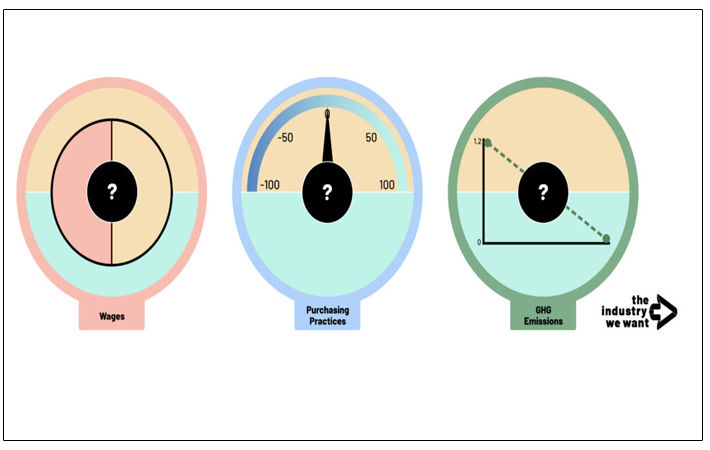
The Industry Dashboard has been launched alongside OECD Forum on Due Diligence in the garment and footwear sector. Each year, the forum brings together representatives from government, business, trade unions and civil society to address emerging risks and share learnings on implementing due diligence in the sector.
The dashboard features TIWW’s first iteration of industry-wide scores on three critical issues in the sector: the living wage gap, purchasing practices and GHG emissions. Synthesising extensive wage data on 13 major garment producing countries, feedback from more than 500 suppliers across 46 countries, and new estimates of apparel sector emissions, The Industry We Want (TIWW) is set to reveal its first ever Industry Dashboard, Fair Wear said in a press release.
Increased alignment and closer collaboration within the garment and footwear industry have been identified as key components needed to improve working conditions for people and to reduce harmful impacts on the planet. The convenors of the initiative, Fair Wear and the Ethical Trading Initiative (ETI), in collaboration with the Sustainable Apparel Coalition, have shared the first iteration of TIWW Industry Dashboard.
The Industry Dashboard has been created in collaboration with WageIndicator Foundation, the Better Buying Institute (BBI) and the Apparel Impact Institute as a step towards annual impact metrics across TIWW’s focus areas. It aims to drive industry progress year on year and strengthen sector-wide perspectives.
An important benefit of the Dashboard is that MSIs and brands – like Fair Wear brand ‘Bamboo’ – can share their score and showcase that good purchasing practices leads to resilient and sustainable supply chains. We expect more leaders to utilise the Dashboard in this way over the course of the initiative, the release added.
“Disclosing results is an important step in our drive for more transparency. We accept the results might not be perfect, but it’s a powerful tool to ensure we can achieve our longer-term ambitions around reducing environmental impact and improving the lives of the people involved in making our clothing,” Merryn Chilcott, BAM’s sustainability and technical manager.
Fibre2Fashion News Desk (RR)